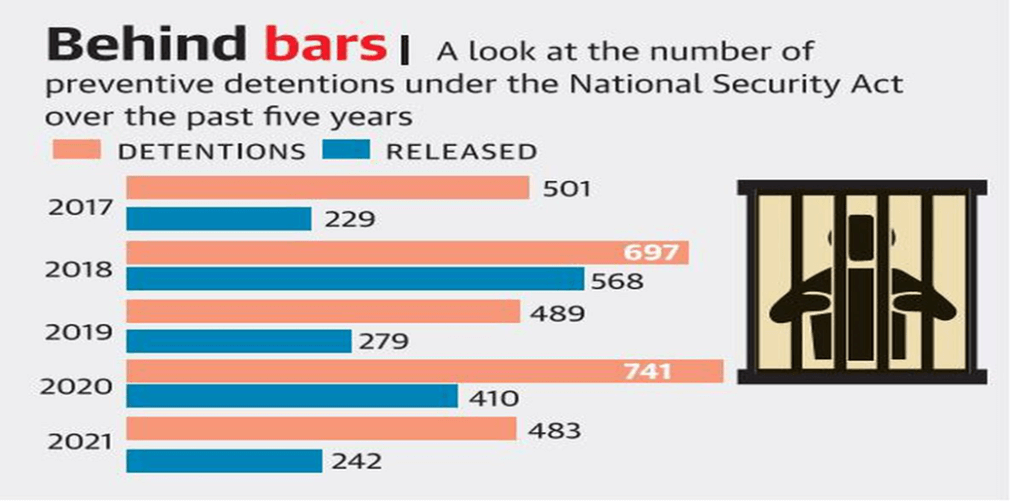The Supreme Court of India recently observed that preventive detention laws in the country are a colonial legacy and confer arbitrary power to the state. In this essay, we will explore what preventive detention is, the issues surrounding it, and some suggestions for greater safeguards against its misuse.
What is preventive detention?
Preventive detention refers to the detention of a person without trial at the will of the executive. The objective of preventive detention is to prevent a person from doing something prejudicial to the security of the State, public order, maintenance of supplies and services essential to the community, defence, foreign affairs, or security of India. It is an extremely powerful tool in the hands of the government and gives them unfettered discretion.
Issues with preventive detention:
While preventive detention may seem like an effective tool for the government to deal with anti-social elements or subversives, it has often been misused. Both Central and state governments have abused such legislation, with even the judiciary being unable to effectively limit such abuses as the detention of individuals without cause, and the failure to follow even the minimal protections offered by Article 22 of the Constitution.
Safeguards:
Article 22(3) of the Constitution provides for preventive detention laws, and Article 22(4) contains safeguards against abuse of this power. No law providing for preventive detention shall authorise the detention of a person for a longer period than three months. Detention beyond this 3-month period requires clearance from an Advisory Board. The 44th Amendment Act of 1978 has reduced the period of detention without obtaining the opinion of an advisory board from three to two months. However, this provision has not yet been brought into force, hence, the original period of three months still continues.
Presently, the following Central legislations which are in force provide for preventive detention:
- The National Security Act, of 1980.
- Conservation of Foreign Exchange and Prevention of Smuggling Activities Act, 1974 [COFFPOSA].
- Prevention of Black Marketing and Maintenance of Supplies of Essential Commodities Act, 1980.
- Prevention of Illicit Traffic in Narcotic Drugs and Psychotropic Substances Act, 1988.

Suggestions for greater safeguards:
To prevent the misuse of preventive detention against people, there must be greater safeguards in place. The court must analyze cases arising from such laws with extreme caution and excruciating detail, to ensure that there are checks and balances on the power of the government. Judges should ensure that the government has followed every procedure of law while flexing preventive detention powers against individuals. Every lapse in procedure must give rise to a benefit to the case of the detenue.
Why In News
In a recent judgment, the Supreme Court of India declared that preventive detention laws in the country are a colonial legacy that grant excessive and arbitrary power to the state. The court’s observation underscores the need for greater safeguards and scrutiny of the use of preventive detention powers to prevent their misuse against citizens.
MCQs about Preventive Detention Laws in India
-
What is the meaning of preventive detention?
A. Detention without trial to prevent a person from doing something prejudicial to the security of the state
B. Detention as a punishment for a crime committed by a person after a trial
C. Detention for a longer period than three months without any safeguards
D. Detention to punish a person for something he or she is going to do
-
What is the purpose of the safeguards against preventive detention?
A. To limit the power of the government and prevent misuse of preventive detention laws
B. To give the government unfettered discretion
C. To allow the government to detain a person without trial for as long as it wants
D. To provide an opportunity for the judiciary to abuse its power
-
Which of the following Central legislations provide for preventive detention?
A. The National Security Act, 1980
B. The Constitution of India
C. The Indian Penal Code, 1860
D. The Code of Criminal Procedure, 1973
Boost up your confidence by appearing our Weekly Current Affairs Multiple Choice Questions
![]()


